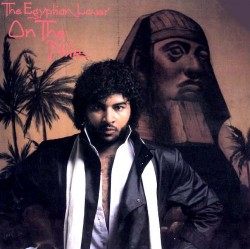Predictions are just teasing unless they turn out to come true.
The Clear Channel demise – predicted.
Consolidation destroying radio – predicted (during their glory days yet).
The rise of digital media and a new generation – yes, that’s one of the reasons you read me.
So, I’ve got four new ones that I’d like you to tuck away in the back of your mind. You may agree or disagree or be startled, but you’ll see why they will have such a great impact on the music and broadcasting industries.
1. ABC Television will be sold
News chief David Westin resigned recently. Some say he was tired of firing people. Others say he is leaving because new owners are coming.
I say, that, too!
Here’s some inside info:
Westin is suspected of leaking the news of his departure to The Washington Post. Then ABC rushes out the PR that says Westin was expected to leave all along. My sources say b.s. to that.
No replacement is waiting – unusual if ABC knew in advance. Westin is staying on to the end of the year, that long goodbye not necessary if ABC knew of Westin’s plans in advance. Disney owns ABC and doesn’t customarily handle things like this.
Disney is cutting the life out of ABC News. Huge newsroom reductions, searching for ways to make news gathering cheaper through cutbacks or alliances with others. ABC News is – to put it frankly – decimated. Bureaus here and abroad – none. No investigative of documentary units – too costly, not necessary in their view.
As an industry insider poignantly put it like this:
“Reality is that Disney has decided to invest in the Marvel comics characters instead of news. At least they skipped the part about anointing Spiderman as World News Tonight anchor.”
Who would want to be president of ABC News now as they are depleting their assets?
Prediction: ABC Television Network gets sold. Disney’s chief shareholder is Steve Jobs.
2. The New York Times will stop printing
Okay, I’m cheating.
Times Publisher Arthur Sulzberger Jr. told a London audience last week that “We will stop printing the New York Times sometime in the future, date TBD.” He was answering someone else’s prediction that the Times will go out of business by 2015.
When The Times publisher comes right out with it, why contradict him?
In fact I believe Sulzberger will be wishing he wasn’t printing the New York Times before then. It’s expensive. Costly unions. Gathering news isn’t cheap.
The best reason is that fewer people read newspapers every day.
I picked mine up off the front step at 2pm yesterday – having read it all before I went to bed the previous night. (Why am I still getting it? There’s a good question. I don’t have a dog).
The Times will introduce a pay model next year that will fail – metering readers use of content and charging for it when they read too much. To put that another way, making your greatest fans pay the most.
Prediction: The New York Times will stop printing and I’ll raise you – they will stop metering readers. This critical misread could cost them the franchise.
3. Advertisers will spend more in new media than traditional when the recession ends.
Is that going to surprise radio, television and print. Traditional media is expecting a big gain when the economy comes back.
Let’s go to the tape – even in this prolonged recession, digital media spending has increased.
Last week Pepsi announced its experimental online campaign that replaced Super Bowl sponsorships last January is back. The Pepsi Fresh Project was considered a social media experiment. Local community causes went to Pepsi online to seek money for their projects and the public voted who should get it.
Pepsi announced it will expand the project to Europe, Latin America and Asia as well as continue in the U.S. and Canada.
What recession?
Media buyers will weep when they see that Pepsi will spend $1.3 million a month for this year’s Refresh project. They have the money to also buy Super Bowl spots but this money is being taken away from traditional media nonetheless.
Pepsi certainly isn’t alone in beefing up its new and social media budgets even in advance of an economic recovery.
Prediction: Traditional media will languish until and unless they get back in the idea business instead of selling spots.
4. Twitter will replace radio and TV for Breaking News
During the Discovery Channel hostage situation, Twitter broke the story beating all traditional news platforms. Social media is a way to get the word out fast.
When USC has a campus emergency, students and faculty receive instant text message updates. Since everyone has a cell phone, there is no need to hope that radio or television will spread the word.
During the San Bruno fires in San Francisco last week, news stations like KGO and KCBS rose to the occasion – after all, free media such as radio can be very beneficial in public emergencies. But all stations should have been responding to this local community disaster.
Here’s what a radio insider from San Francisco wrote:
“I have been part of stations who fielded calls, gave information, suspended music and aired callers and got in our Vans and went to where we could help.
“What I heard, in summation, the 2 top news stations (KGO, KCBS) did a great job even with a smaller staff than they used to have.
“All the FM stations ran tracking as usual or if they had someone live they broke in with ‘Call the Red Cross to help donate money or blood and get the info from our website now here’s Rihanna’.
“I’m frustrated because I know what it could be and should be. There was more on Facebook last night. That has become the new “Town Hall” (CNN does a great job of using FB and connecting it with their site. We need to be all over that kind of outlet).
“Think of when there is an earthquake, where is the first place people used to go? radio ;I felt a rumble’, ‘I felt a roll’ now we are on Facebook in 2 seconds. BUT people still want to hear a human voice. If we link those things people will feel intimately connected”.
Prediction: A human voice can be on mobile Internet devices and that’s the new breaking news.
wriiten by By Jerry Del Colliano of Inside Music Media





